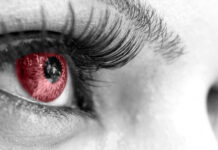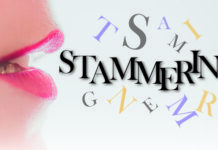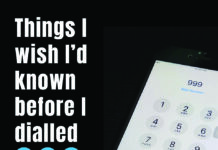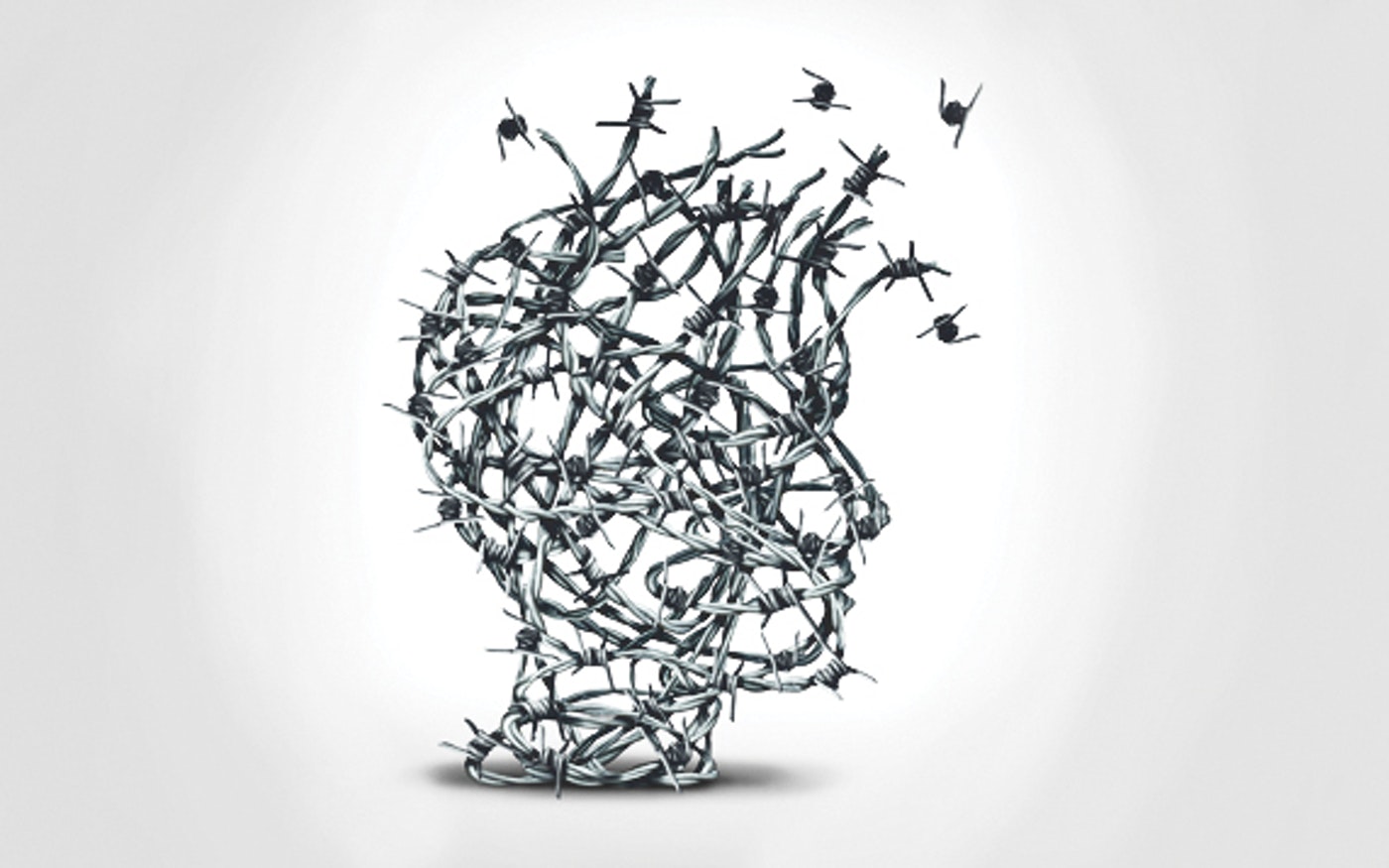Trauma, like many words means different things to different people. We have a tendency to see atrocities across the world and label these incidents as ‘real trauma’.
Front line staff, from soldiers to emergency medics are immersed in traumatic environments. But so are many of us, in our own homes, living our day-to-day lives. How are we affected?
We refer to ‘big T’ trauma as a BIG event, an accident, attack or similar situation that was forced upon us and we endured.
However, ‘little t’ traumas refer to our ongoing challenges. Situations we find ourselves in and we feel powerless to do anything about them. Our bodies register them all and we live our lives from this personal stored history. ‘The body keeps the score‘ is the title of a brilliant book by Bessel van der Kolke a renowned psychotherapist, which explores this in greater detail.
Let’s talk about our nervous system. Our fantastic bodies are hard at work, day and night trying to keep everything in balance. We sense our environment even before we have consciously recognised and ‘made sense’ of things. Our environment is not only our physical space, it also refers to our internal world, our thoughts, feelings and emotions. All this combined gives us what is known as our ‘felt sense’ this is interoception. Some of us are more aware of our internal world than others but we all are functioning from this place.
What is our internal world signalling to us? We are back to that stored history we spoke of earlier; it all starts in our formative years. As babies and very young children we are 100% reliant on our caregivers for our survival. We are bathed in the nervous system signals from those around us which includes the verbal and non-verbal communication, through facial expressions, tone of voice and touch. As babies we do not yet have the thinking skills to reason anything, we are totally reliant on how we feel.
Whether we are uncomfortable, wet, hungry, thirsty or scared we communicate by crying. How we are responded to soothes us or not, unmet needs are traumatic to an infant. Sometimes babies just give up crying, not because their needs have been met, but because their efforts have not been met with the required response to sooth them. I would argue that it is virtually impossible to meet our children’s needs 100% of the time. Parents are often overtired and emotionally drained, we are sharing with our babies and others how we feel all the time. Also, we can never really know what another person’s needs are, so it is all trial and error. You hopefully will be relieved to know that it is said 30% of getting it right helps to secure attachment with our children, phew!
This attachment or bonding refers to the connection, the relationship, and that is obviously not all under your control! A relationship is more than one person. It is not all about you and what you ‘do’ with your children or your intentions. They will each have their own perception of what your actions mean. This is why we can have several children from the same parents, brought up in the same environment physically and they each have a different view of their parents. Our experience is unique to us.
Our experience is based on our internal environment, those thoughts feelings and emotions we talked of are responsible for the meanings we make.
Our history is embodied but unconscious to us. We can feel uncomfortable as our body reminds us of past events, but not necessarily the full details will come flooding back. They may, or we may have more subtle clues to something feeling like a threat or off-kilter. We might not know why we feel this way, but our body is sharing with us the unresolved stories that we carry. It is trying to keep us safe.
We are a walking recorded history of our past
When we are in conflict with another person, we are touching each other’s ‘wounds’. All our relationships are here as our teachers. My children have been and still are my teachers. Not always because of what they say and do, which can be profound, but because of how the communication makes me feel. How we feel and how we address that is what can move us a greater sense of wellbeing, one that impacts us mentally and emotionally. We can become better at responding rather than reacting.
This is not to say that when people do and say bad things we have to accept them. It is to say that we can take control of how we react to those communications. What are the feelings trying to tell us?
Don’t shoot the messenger
My own childhood was ‘normal’, whatever that means. I had no reason to go looking for any childhood challenges ‘traumas’. I stumbled upon my body’s hidden truth along the way. I now recognise that our unconscious history is the driver of our personality which includes beliefs and values. That is what our day-to-day life teaches us if we are watching and listening. I believe we don’t have to go digging for it. Life shows us what we need to deal with through our feelings.
Unresolved stress, tension and anxiety build over time. The foundations were set in our childhood, but our lives build upon these foundations. As our responsibilities grow, we move into the world of work and families and we are dragging our history with us. The load gets heavy over time.
A word about abusive relationships and that level of trauma. Although we are learning through relationships all the time we are not meant to suffer! Being around abusive relationships is toxic and toxic environments do not support anyone. I have heard it said that we will not let others treat us any worse than we believe, on some level, we deserve. That says a lot about self-worth and again brings us back to whether we feel loved and valued for who we are. We are again back at being parented and what that meant to us.
So, what are we to do?
First and foremost, bring compassion for yourself and others. No one has gone through childhood unscathed. You may witness how others are and judge, but you have no real idea of their internal world. Whilst this sounds simple it is not always easy.
The more compassion you can connect to, the more you are healing wounds, both yours and others. We are all connected energetically, what you give out you also receive. If that is too ‘woo-woo’ then test it for yourself. Think of someone you love and care for, really remember the good times. How do you feel? You have just fired up all the chemicals that create love, joy, compassion… whatever it was for you. The opposite is also true. Think of someone who annoys you. You’re justified in your judgement because of the way you feel. Again, those chemicals are created and living within you. You get to choose which chemicals you want swimming around your body. When you fester in your hurt you are the one being continually damaged. When you choose compassion you acknowledge the hurt, you are not denying the pain, but compassion can dissolve it.
It is not necessary or even recommended to connect with the people involved and drag things up again. Work on yourself because that is the only place you can create change.
Whilst we can consciously choose to work on ourselves as ‘stuff’ comes up, what happens to that history in your body?
How can you work on your unconscious story?
I would like to introduce you to an excellent way to readjust your nervous system and bring yourself back to balance whilst releasing trauma. TRE which stands for Tension and Trauma Releasing Exercises. Created by the world-renowned Trauma and Conflict resolution specialist David Bercelli.
He works in war torn countries with soldiers and survivors of ‘big T’ trauma. The process he created is easily learned and supports us to unpack the stored history from our body without the need to go looking for it. As mentioned in ‘The body keeps the score’, the ‘little t’ traumas are all under the conscious radar anyway.
Check TRE out and find a provider near you through the website www.traumaprevention.com. As a certified provider I can be found working from The Bridge Natural Health Centre near Derby 01332 521270 or contact me directly on 07971 536872 Your body will thank you for it
Sue Frend is a certified mBIT Trainer and Master Coach with over 30 years in the personal development field. Her mission is to help people understand their inner critics and give them tools to find balance and improve mental and emotional wellbeing. She believes this should be part of our education. Prevention is better than the cure.










